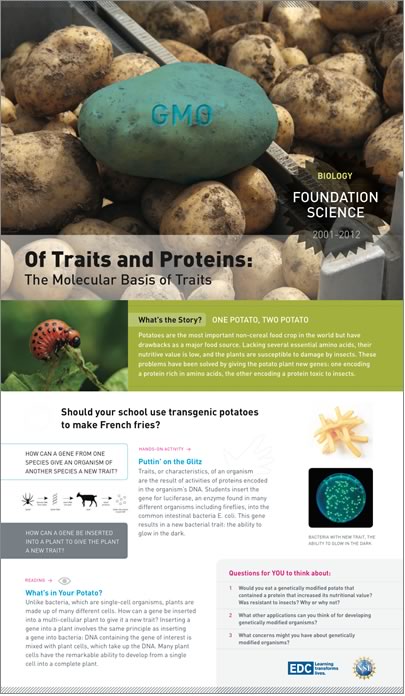 Biology
Biology
Foundation Science: Biology, now entitled Biology: Concepts and Practices and published by Carolina Biological, is a full-year introductory course in biology for high school that emphasizes active inquiry learning and is fully aligned with the Next Generation Science Standards.
Three big ideas thread through this examination of life.
- Life is very complex and very diverse, and yet the underlying similarities among organisms are striking. By studying both the similarities and differences, understandings can be achieved about the origins of life, the development of diversity, and how organisms do (or do not) co-exist on Earth.
- Information transfer over space and time is a major theme in biology. Information transfers vertically in heredity and evolution and horizontally within and between cells. It can occur in nanoseconds during gene expression, within seconds or minutes within organisms, over generations in heredity, and over eons in evolution. It is the ability to use and combine information that gives rise to diversity.
- Understanding of fundamental concepts in science can facilitate the design of new technologies and products that improve the quality of life.
The course begins with ecology. Students consider the components that make up an ecosystem and the unintended consequences when a component of that ecosystem changes. Students then explore biodiversity and how it arises in an ecosystem through changes in the environment and natural selection. Students next consider the cell as a micro-ecosystem and investigate its structure and function. In the second semester, students explore genetics: how information in DNA results in traits of an organism, how this information is transferred from generation to generation, and how variations in traits occurs. Using the understandings they have gained from studying ecosystems, biodiversity, and genetics, students are ready to understand the evidence that supports evolution in the final unit.
Read more about Biology: Concepts and Practices.

